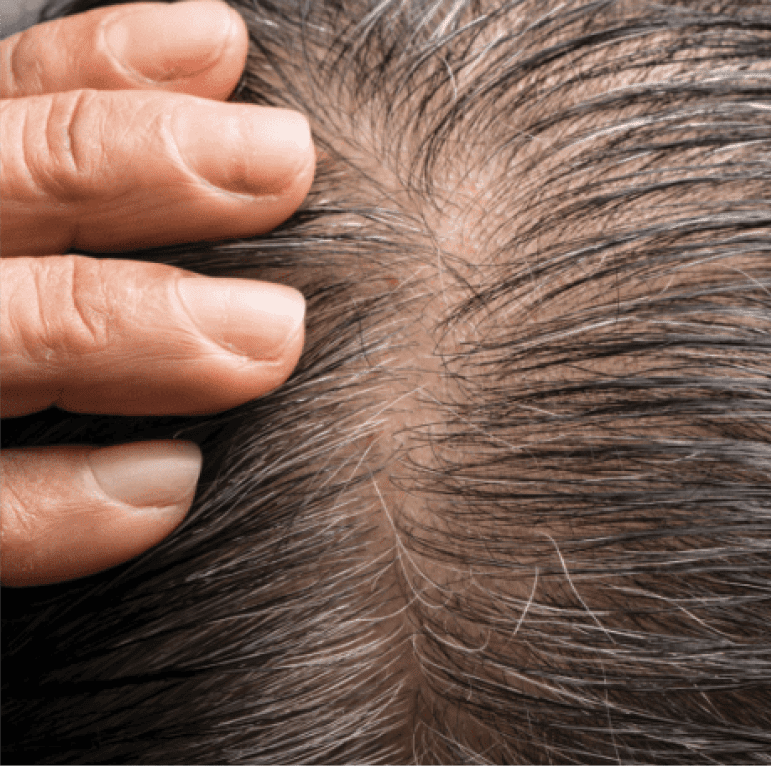Updated 30/10/23
Chemotherapy And Hair Transplants. It’s evident that when one is undergoing Chemotherapy that it will come with side effects. The obvious one is (hair loss), and this includes eyebrows and eyelashes too. This can be hard to deal with, and for many sufferers, this common side effect is concerning, and most want to avoid it at all costs. Understandably, this will have an impact on one’s self-esteem and confidence. However, not everyone undergoing Chemotherapy will experience hair loss as some drugs will not cause hair loss. Still most of them do it usually starts with thinning the hair to clumps coming away from the hair when washing and brushing. If this is something you are experiencing then it’s always best to get professional advice from your doctor. They will be able to inform you fully of what to expect.
Hair tips during treatment
There are different things that can be done to help ease the strain on one’s hair during Chemotherapy. How is this? Being productive could help you retain more hair throughout your treatment; it’s always best to be extra careful.
At the Hair Dr we understand the stress and everything else which comes with Chemotherapy, and we have put together some tips which may be helpful for you.
Have short hair?

It might be a good idea to cut your hair before treatment gets started. Making hair loss less noticeable and may help you to cope in general. It will also be easier to maintain. We would advise you not to use heat on the hair when drying, brushing, and even washing as the last thing you want to do is be pulling on the hair as this will cause extra strain. Stay aware of the heat it’s a no-go.
Always protect the scalp

If hair loss does happen then now would be the time to protect the scalp and hair follicles to prevent extra damage, and this is why we suggest taking extra precaution.
Take extra precaution in the sun

It sounds like common sense but if hair loss does occur then now is a good time to grab a hat and sun cream. It’s crucial you don’t leave the house without this because the sun is not advised when undergoing chemotherapy.
Keep the scalp well moisturized

It’s essential to keep the scalp well moisturized and healthy. Be extra careful in extra cold weather. Grab the essentials for the cold weather and stay warm with a hat and scarf.
Look at your diet

A proper diet is vital in everyday life. However for one undergoing chemotherapy, it’s important that extra precautions are taken. How can you do this?. Your diet will have a significant impact on your hair growth and hair loss. However hair loss during chemotherapy cannot be helped, one must be getting enough protein, vitamins and minerals. It will reduce the amount of hair loss and will help the regrowth process.
Get in touch
Chemotherapy is a life changing medicine and can cause havoc on patients undergoing treatment. We know it can be difficult. Sometimes one may struggle with hair loss after chemotherapy has ended. You may be wondering what can done for you and if a hair transplant is something you should consider. Then look no further than the Hair Dr, because we are in this with you.
If you are currently experiencing hair loss from chemotherapy, then we know what you’r going through. We know the insecurities you might be feeling and overall suffering and agony. After all, for a lot of men and women it can be traumatising because so much of who you are comes with your identity, appearance and the way you present yourself. How you look and your hair is a big part of that. Chemotherapy is something outside of on’es control. It can make you feel self-conscious and insecure and it can affect your confidence in general, let alone the opposite sex. We at the Hair Dr want to make you feel free.
If you are left with no other option then here at the Hair Dr we would consider talking to us about a hair transplant as a permanent solution to your hair loss. A single surgical procedure should be sufficient for you to regain the full head of hair and finally bring an end to endless treatment and getting your confidence back.

We are here to answer any questions and to help you on your hair journey. Patients come first at the Hair Dr, and we are in it together.
If you have any questions, then please feel free to contact us today on either method T: 0808 169 7210. E: info@hairdr.co.uk alternatively you can book a free consultation via our website.
FAQs
Are hair transplants painful?
Hair transplant procedures are performed under local anesthesia, making them virtually painless. Patients may experience some discomfort in the days following the surgery, but this is manageable with pain medication.
How long does it take for transplanted hair to grow?
Transplanted hair typically starts to grow within three to four months. It may take up to a year to see full, natural-looking results.
Is there any scarring after a hair transplant?
Both FUT and FUE methods can leave minimal scarring. FUT leaves a linear scar, while FUE leaves tiny, less noticeable scars. These can be easily concealed with hair.
Is it safe to undergo a hair transplant during chemotherapy?
It is generally safe to have a hair transplant during chemotherapy. However, it’s essential to consult with your oncologist and a hair transplant surgeon to ensure it’s the right choice for your individual circumstances.
Are hair transplants covered by insurance?
In most cases, hair transplants are considered cosmetic procedures and are not covered by insurance. Patients should be prepared for out-of-pocket expenses.
How long do the results of a hair transplant last?
Hair transplant results are generally permanent. The transplanted hair will continue to grow naturally, providing long-lasting results.









